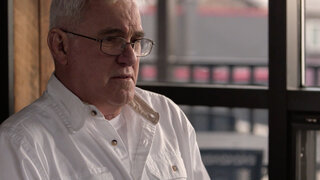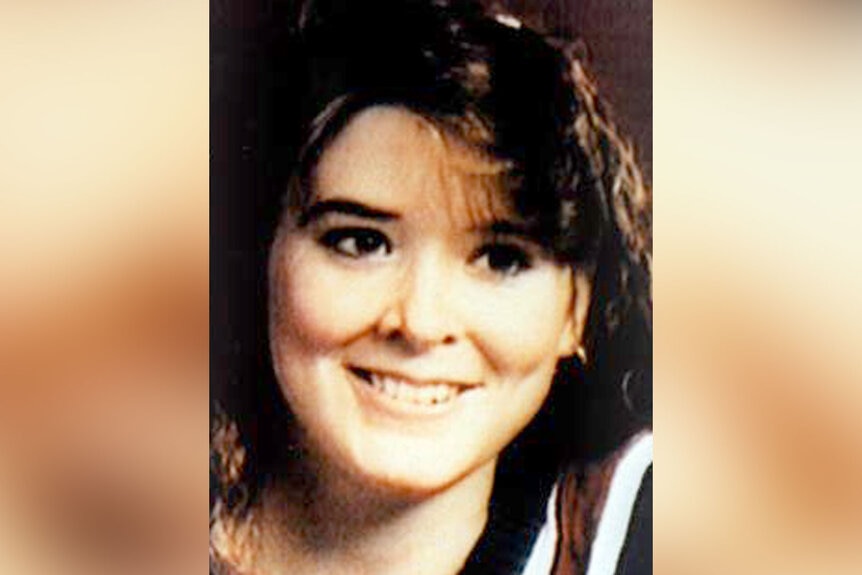Create a free profile to get unlimited access to exclusive videos, breaking news, sweepstakes, and more!
Was The Right Man Convicted In The 1994 Disappearance Of A Teen Gas Station Clerk?
Heidi Allen vanished Easter morning in the middle of her shift at a New Haven, New York gas station, but decades later questions still swirl about what happened to her.
For 23 years, Gary Thibodeau sat behind bars for the kidnapping of a teenage gas station clerk who mysteriously vanished Easter morning in 1994 — but did he commit the crime?
Thibodeau died behind bars in 2018 at the age of 64 while still continuing to maintain his innocence in a case that has haunted the community of New Haven, New York for decades.
A missing person’s notification on the website for the Oswego County Sheriff’s Department continues to insist the disappearance of Heidi Allen remains an “open case,” despite Thibodeau’s conviction in 1995.
“At this time, the Oswego County Sheriff’s Department and the Federal Bureau of Investigation consider the matter to be an open case. Officers are still assigned to the investigation and continue to follow leads, hoping to find the remains of the missing woman,” authorities said.
Allen disappeared some time before 8 a.m. on April 3, 1994 during the middle of her shift at the D& W Convenience Store.
The 18-year-old, who worked part-time while in college, had opened the store at about 5:45 that morning after taking the shift for another coworker, according to “Dateline: Secrets Uncovered.” Her boyfriend was there with her to start the day, but left as the store was getting busier.
“He would take her so that she wasn’t alone until people, you know, like the traffic was picking up, and then he would go,” her sister Lisa Buske explained.
Richard Thibodeau had been her last customer that morning before she mysteriously vanished from the store. He told “Dateline: Secrets Uncovered” that he remembered buying two packs of cigarettes.
“I told her, ‘Have a nice day,'” he recalled.
By the time other customers arrived at the gas station, Allen was gone — although her car still remained parked in the lot. The concerned customers quickly flagged down a deputy and the search began for the missing 18-year-old, whose body has still never been found.
When Richard heard Allen was missing, he called the sheriff’s office to report seeing the teen at the store early that morning. Others reported seeing a van, described as either blue or white, at the convenience store around the time of the disappearance.
“They noticed somebody driving very erratically, wrestling or struggling with somebody in a van,” said Reuel Todd, undersheriff at the time of the Oswego County Sheriff’s Office.
Investigators had few other clues to go on in the months that followed other than a profile from the FBI urging them to look for someone with a history of violence who would also be obsessed with the case.
Authorities did believe they had one promising lead and took a closer look at Richard, the last customer at the convenience store before Allen disappeared. Richard drove a white van that seemed to match the description of the van spotted by one of the witnesses at the scene. Feeling they may have their man, investigators started conducting surveillance on Richard and his brother Gary, after someone reported seeing two men that morning at the gas station.
Gary insisted the morning of the abduction he had been at home asleep, an account his girlfriend had also confirmed. But when investigators learned that Gary had a warrant out for a drug charge, they arrested him and extradited him to Massachusetts.
As he sat behind bars, two prisoners would later tell authorities that Gary confessed to killing Allen as part of a drug deal gone wrong, although her family said Allen didn’t use drugs.
It was enough for investigators to arrest Gary and Richard for first-degree kidnapping. While Gary went on trial first and was convicted by a jury in 1995, his brother Richard — the brother who had admitted to being in the store that day — was acquitted.
It seemed to be the end of the case until years later, when a woman came forward to report that another man had confessed to kidnapping and killing the teen.
Tonya Priest had been at her friend Vicki West’s house a decade after the crime when conversation turned to the Allen case after a news report had come on the television.
According to Priest, West’s boyfriend, James “Thumper” Steen, asked the women if they “really want to know what happened” to Allen.
She said Steen claimed that he and two of his friends had gone to the convenience store that morning and abducted Allen.
“He said that ‘we pulled in right up by the doors with the vehicle running,’” Priest told "Dateline" reporter Dennis Murphy.
RELATED: An Ohio Mom Is Found Dead From Carbon Monoxide. Was It A Tragic Accident Or Murder?
Steen then claimed to have grabbed Allen, dragged her out of the store, and threw her into an awaiting van and kidnapped her because she had been a “rat,” according to Priest.
The women initially didn’t believe the story and thought Steen was joking, but Priest said “the more we didn’t believe him, the angry we became.’” He even told them to ask a woman named Jennifer Westcott about the incident, claiming that they had taken Allen to Westcott’s home after the abduction.
Although Priest was convinced Steen had played a role in the abduction, she was too afraid to go to police and remained quiet until Steen was arrested in 2010 for killing West. He was later convicted of the murder and sentenced for life in in prison.
With Steen safely away, Priest decided to share what she knew with authorities and reached out to the Oswego District Attorney’s Office, who were intrigued about the possible new suspects. They encouraged Priest to get in touch with Westcott, who she knew from high school, through Facebook and then recorded a phone call between the pair.
“Did you even know that they — this was Heidi that they brought there? And that this is what they were gonna do?” Priest asked.
“Uh-uh,” Westcott responded, according to a recording of the call.
“You had no clue? What, they just showed up with her?” Priest continued to press.
“Yeah … they didn’t even bring her in the house,” Westcott said, before adding that they “made her sit in the van.”
Despite the alleged knowledge she had of the case, when Priest asked if she’d ever go to authorities, Westcott said she’d “never open a can of worms like that.”
The tape was enough for investigators to bring Westcott in for questioning, but she denied having any involvement in the case and said she just told Priest what she wanted to hear to get her off the phone.
After contacting the two other men implicated in the story, who denied their involvement, and the jailhouse informants, who stuck to their story that Gary had confessed, Oswego District Attorney Gregory Oakes concluded that the right man was behind bars.
But Priest’s story was enough to convince New York federal public defender Lisa Peebles, who agreed to take on the case and made a stunning discovery. Before Allen disappeared, she had worked as a teen drug informant for the Oswego County Sheriff’s Office, under the code name “Julia Roberts.” Even more disturbing, the deputy in charge of working with Allen had once lost an identification card naming her as informant for the sheriff’s office in the parking lot of the gas station two years before her death.
Gary’s defense team said they had never been given the information, which Peebles believed could have significantly impacted the case.
“That certainly would have opened up the field to many other possible suspects with motive to harm her,” Peebles said, calling it a “huge injustice.”
She filed a Brady violation, arguing that the prosecution had not handed over information crucial to the defense, and continued to pursue the case all the way up to the state supreme court — but ultimately Gary was never given a new trial and died behind bars.
He continued to maintain his innocence up until his death, but had also found a way to make peace with the life he was given.
“I’ve gone through all of the feelings and emotions and thoughts over the years, but I kind of believe you are where you are in life because that’s where you are supposed to be, whether it has anything to do with the innocent or guilty,” he said.


































